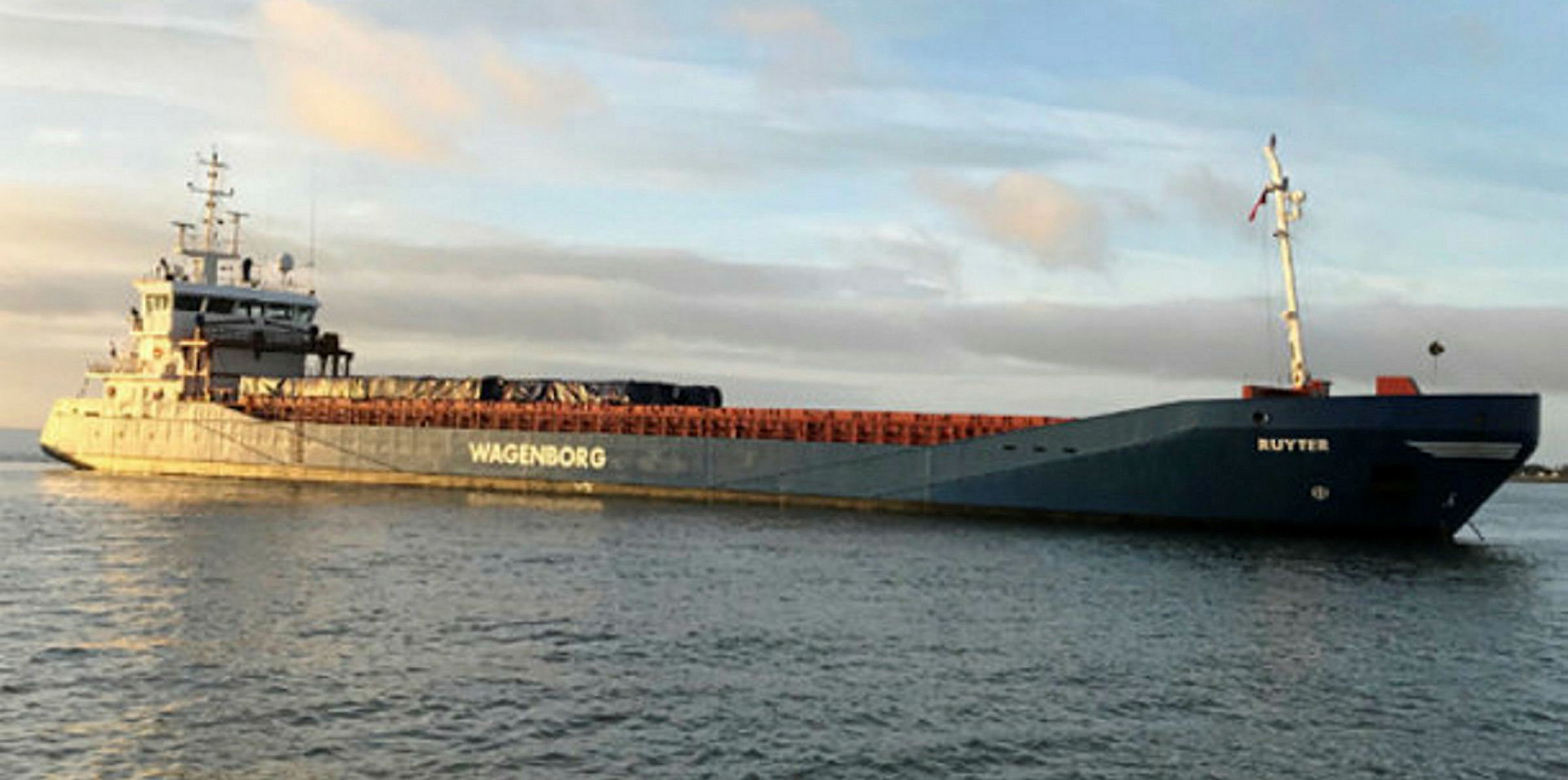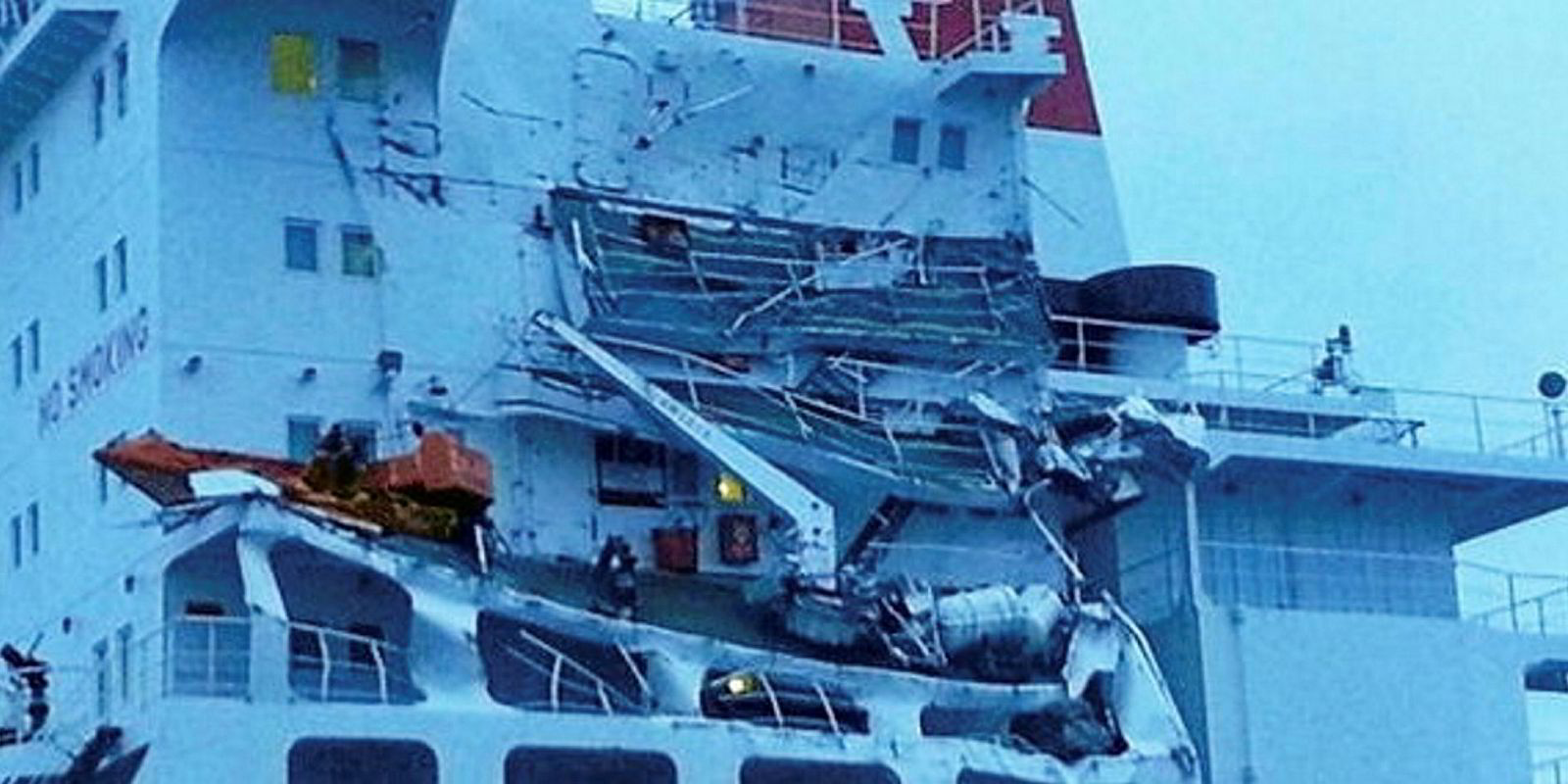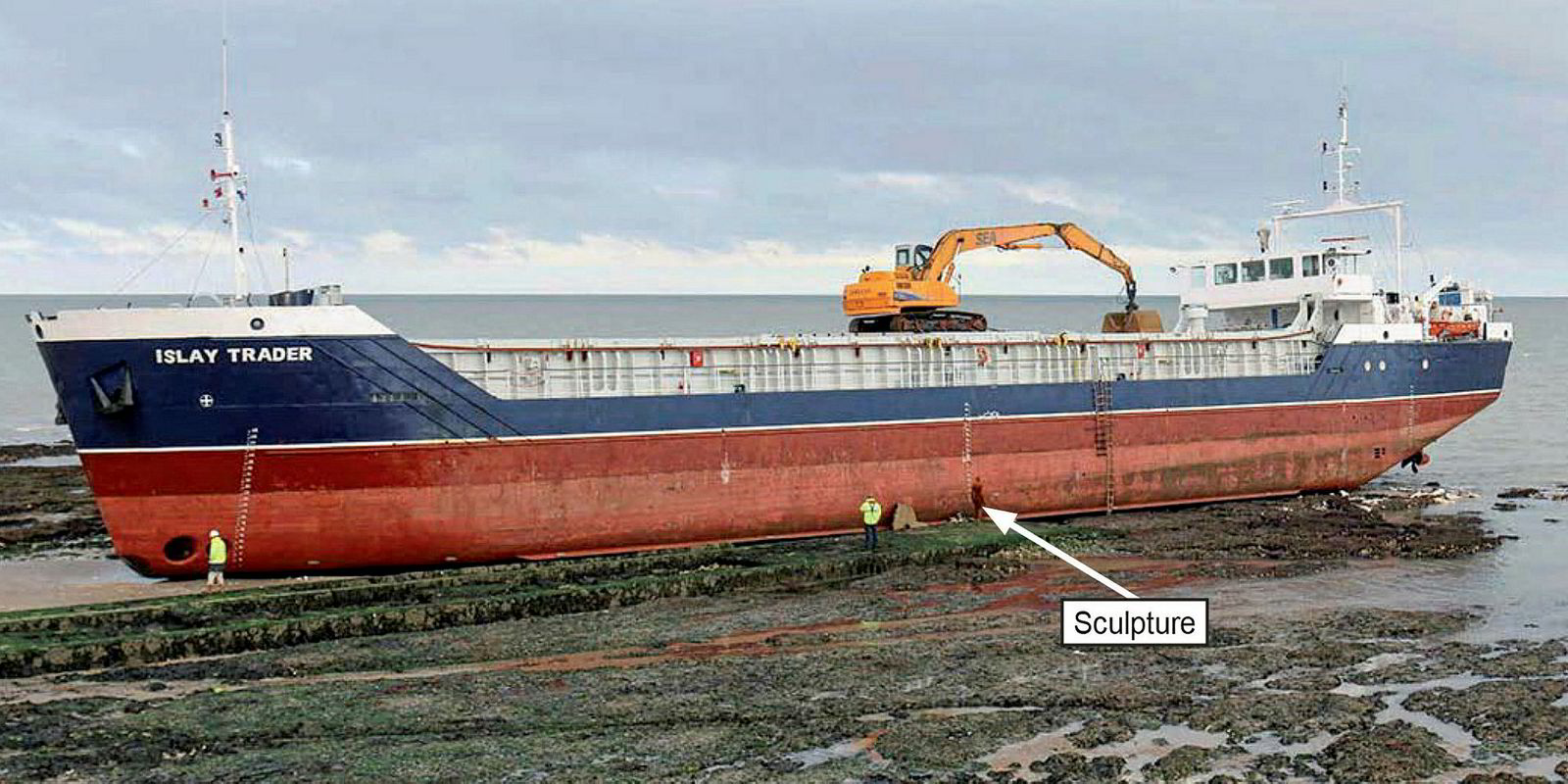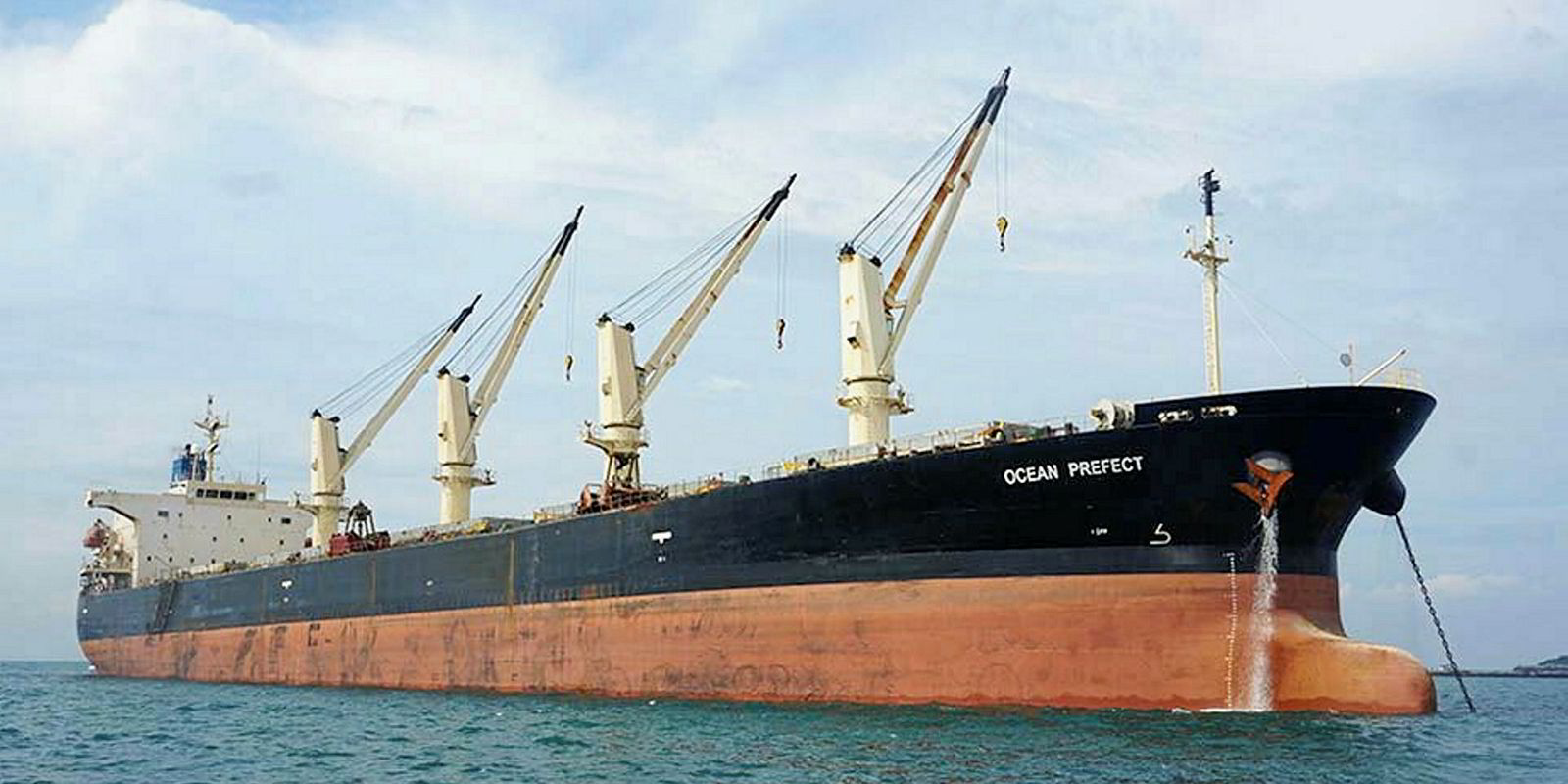A Dutch general cargoship grounded off the UK last year because its drunk Russian master left the bridge unattended, an accident report has revealed.
The VD Innovation-managed, 3,600-dwt Ruyter (built 2006) got stuck off Rathlin Island, Northern Ireland, on 10 October, damaging bow shell plating and frames, resulting in the flooding of the bow thruster space and forward voids.
The Marine Accident Investigation Branch (MAIB) found that no action had been taken to correct a deviation from the ship’s planned track.
The master, who was the sole watchkeeper, had left the bridge, and the bridge navigational watch alarm system (BNWAS), which could have alerted the chief officer to the fact that the bridge was unmanned, had been switched off.
The master had been drinking alcohol before taking the watch.
The chief officer had previously been concerned over the captain’s regular excessive consumption of alcohol, but at the watch handover had been satisfied that he was fit to fulfil his duties.
VD Innovation has since taken action including the introduction of random alcohol testing and the empowerment of its crews to alert any concerns they may have to the company.
Alcohol on master's breath
The captain had arrived on the bridge to allow the chief officer to take a meal break. He had been drinking in his cabin.
The chief officer smelled alcohol on the master’s breath but, following discussion with his senior colleague, was satisfied he was fit for watchkeeping duties, the report said.
The watch was swapped again after 20 minutes, with the captain returning to drink in his cabin and watch a film.
He came back to the bridge for his designated 2000 hours to midnight watch.
Again, the chief officer smelled alcohol on his breath but remained satisfied that he was fit for watchkeeping duties, MAIB said.
The master made two steering adjustments to the autopilot before the grounding two hours later.
Regular drinking
MAIB said that about two weeks before the accident, the chief officer had informed the master that he was concerned about what he considered to be the master’s regular excessive consumption of alcohol.
The master had initially appeared to heed the chief officer’s concern, but subsequently had started to drink heavily again.
The safety management system (SMS) referred to the company arranging for alcohol testing of the crew. However, the investigation found no evidence that such testing had ever been conducted on board.
The chief officer had not reported his concern to the company
Ruyter’s watchkeeping schedule required a crew member, in addition to the officer in charge of the navigational watch, to act as lookout on the bridge between 2200 and 0600.
However, this instruction was not routinely complied with, and the master had previously left the bridge unattended.
The BNWAS was configured to sound in both the master’s and chief officer’s cabins, but was routinely switched off.
"The fact that he regularly consumed alcohol on board suggests that this might not have been his first infringement of the SMS instruction," MAIB said.
"The company’s oversight of his performance on board had been insufficient to identify and address this safety issue.
"With no previous incidents resulting from his consumption of alcohol, and with no enforcement of the company’s alcohol policy, the master’s acceptance of the risks associated with his alcohol consumption is likely to have been reinforced over time."
There was no testing equipment on board for the chief officer to use at sea to validate his assessment, MAIB added.
The SMS did not contain instructions on how an officer should tackle a master’s inappropriate behaviour, and the chief officer did not feel sufficiently empowered to take decisive action and tell the company about the master’s drinking.
"As the master continued to perform his duties having consumed alcohol, without consequence, it is likely that the chief officer came to accept this as the norm, with the result that he was content for the master to take over the watch at 2000," MAIB said.
Look-out useful
"There are many benefits to having a dedicated lookout on the bridge, in addition to them fulfilling their primary, statutory function. The lookout’s presence acts as a stimulus to keep the watchkeeper alert," it added.
The company was explicit in its requirement that the BNWAS should be switched on at all times when at sea, but on board Ruyter this instruction was ignored, the report said.
"It is possible that the need to constantly cancel BNWAS alerts was seen as an irritation, or it was disabled to prevent it alerting the crew on the occasions that the bridge was unmanned.
"The master was known to have left the bridge unmanned on a number of previous occasions, and it is possible that it was his decision that the BNWAS should be switched off. Whatever their reasons, Ruyter’s watchkeepers perceived little benefit in having an operational BNWAS, and so it was left switched off."
Later in October, the master, Aleksandr Iakovtsov, 59, was fined £1,000 ($1,300) after pleading guilty at Armagh Magistrates Court to not keeping a proper look-out, failing to safely navigate and causing serious damage to the ship.
He was released and returned to Russia.






